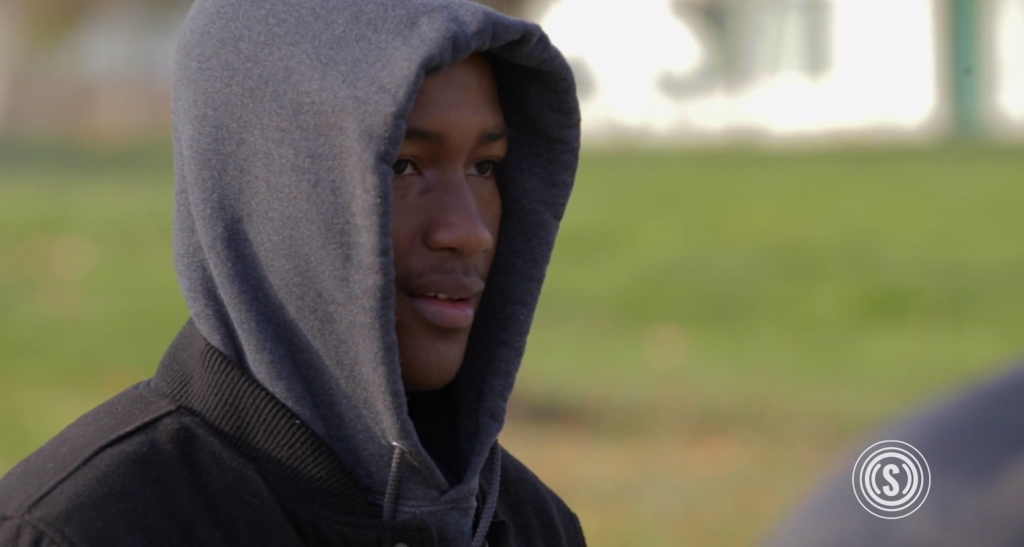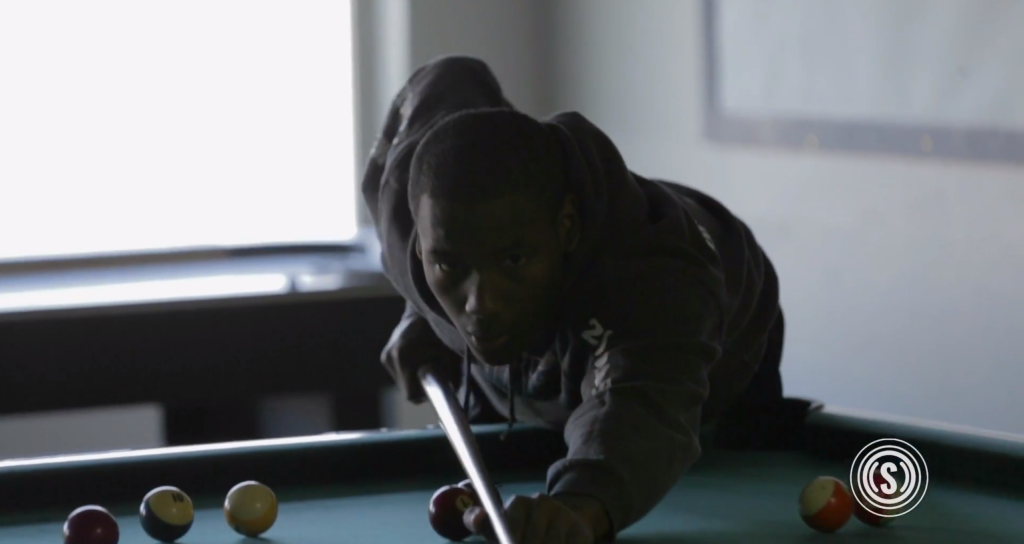How Travis Crockett Leaned on God and Helping Hands to Lift Himself From Poverty and Mean Streets
Kelsey Bolar /
When he was 5 years old, Travis Crockett saw his mother’s close friend shot dead on the street.
“Why are you crying?” his mom asked, as he wiped away tears. “You don’t even know this person.”
“He killed him over 10 dollars,” Travis told her.
Violence, gangs and drugs were unavoidable. Travis’s father was largely absent from his life. His mother lacked the means to support him and his brother.
Although Travis never intended to go down a destructive path, growing up in the Chicago projects, he thought he had little choice.
“I had no way out,” he recalls in an interview with The Daily Signal.
>>> Robert Rector: How the War on Poverty Has Hurt Marriage
By eighth grade, Travis was smoking marijuana, drinking alcohol and selling drugs. He was kicked out of school for fighting members of rival gangs.
When he didn’t return to school for months, it was clear he was in trouble.
“All I could do is fit in,” Travis recalls, “so I could have a life and not sit in the house the whole time.”
He was barely 15. That’s when a neighborhood ministry worker, Sarah James, unofficially adopted the Crockett family.
“Auntie Sarah” made it possible for a cousin to travel across the country to a place called Jubilee Leadership Academy. She asked Travis if he wanted to go too.
“I just burst into tears,” Travis says, recalling his response: “Yeah, I want to go to Jubilee. I always wanted to go to Jubilee.”
Travis’s story, sketched out in the accompanying video from The Daily Signal, is one reason that World magazine selected Jubilee Leadership Academy from among five finalists to receive its 2014 Hope Award for Effective Compassion.
Jubilee Executive Director Rick Griffin and his wife, Leann, accepted the award and a check for $25,000 from World’s Warren Cole Smith and Jamie Dean at a Nov. 20 luncheon in Washington, D.C. The ceremony took place during The Heritage Foundation’s annual Antipoverty Forum bringing together politicians and policymakers, government and nonprofit officials and faith leaders to advance conservative solutions to poverty and human need.
Founded in 1995, Jubilee Leadership Academy is an all-boys Christian boarding school just outside Prescott, Wash., a small town two hours southwest of Spokane.
Jubilee is situated on 400 acres donated by philanthropists Ralph and Cheryl Broetje, owners of Broetje Orchards, one of the largest privately owned apple orchards in the U.S. Their vision for Jubilee was to plant seeds of hope in the lives of troubled boys.
Through counseling, a fully accredited academic program and a range of vocational and athletic activities, Jubilee’s staff of 45 offers struggling boys ages 13 to 18 a way out of poverty, drugs and violence.
“It’s that chance for a comeback, that leveling of the playing field,” says Griffin, one of Jubilee’s five founders as well as the school’s executive director. “It’s a place where all their debts before won’t be counted against them.”
>>> Commentary: Is There a Link Between Childhood Homelessness and Single Parenthood?
Indeed, the academy’s name comes from the Bible’s Old Testament. It recounts that every 50th year the Israelites would celebrate the year of Jubilee, when God desired to mark release from indebtedness and bondage. Prisoners, captives and slaves were released, debts were forgiven and property was returned to original owners.
In other words, it was an opportunity to begin again.
Griffin, in an interview with The Daily Signal before learning the Hope Award would go to Jubilee, says he hopes to raise enough money to renovate the academy’s dorm, construct a new one and build a gym.
The academy, while not much to look at, provides what he describes as a Christ-centered community where troubled youth can make that new beginning.
“I always knew [God] was there,” Travis recalls of growing up in Chicago:
Through the ages 5 to 11, I stayed in a church every single Sunday. But I still had this anger issue and it affected me one day. God—he never let go. He brought me to this place in the middle of nowhere so I could find Him again.
Although some boys pay their own way through the program, Jubilee offers scholarships to those who can’t afford it.
“It is really important to our mission that we offer the program to anyone who desires to change their life,” says Griffin, 50, a native of Wyoming.
The average stay at Jubilee Leadership Academy is just over a year. Travis is about four months shy of two years.
At first resistant, Travis, now 16, has grown to appreciate the program and the staff. He has taken on a leadership role.
“He is now choosing to serve others that are starting out, as a mentor for other young men,” Griffin says:
Travis knows what they’re going through and he can walk them through that. He’s choosing now to give out of his skill set instead of just advancing for himself.
If it weren’t for Jubilee, Travis says, he still would be on the streets.
“I would probably be in Chicago with my friends—or my so-called friends—gang-banging and stuff like that.”
Now, he hopes to return to the projects for a different reason: to help other kids in need, as part of a ministry:
I just want to share my testimony of what I’ve been through and the things that I have seen, and I just want to help them not to go down that same path that I did.
In the meantime, Travis has big dreams of graduating high school, attending Eastern Washington University and making it to the NBA.
“But I have to get taller, of course,” he jokes.
Griffin, who overcame his own difficult circumstances to earn a master’s degree in education from the University of Phoenix, hopes to continue helping to give direction to troubled adolescents and teens.
“Every dollar that comes in means one more dollar we get to give to an individual who doesn’t have one,” Griffin says. “Our hope is that we could build another dorm to help more kids who are struggling.”


